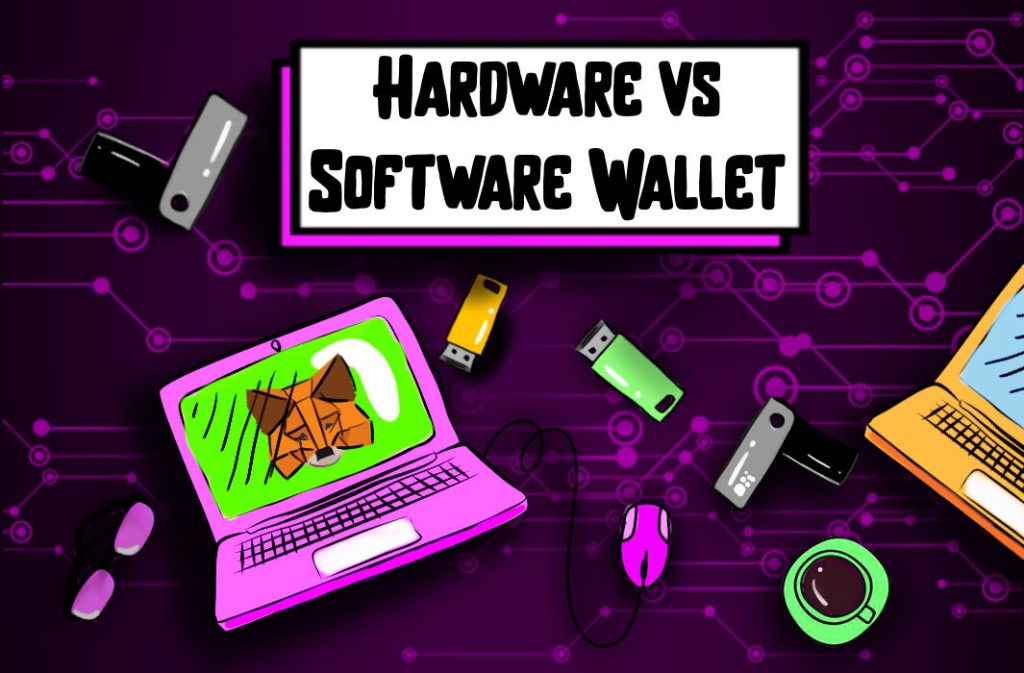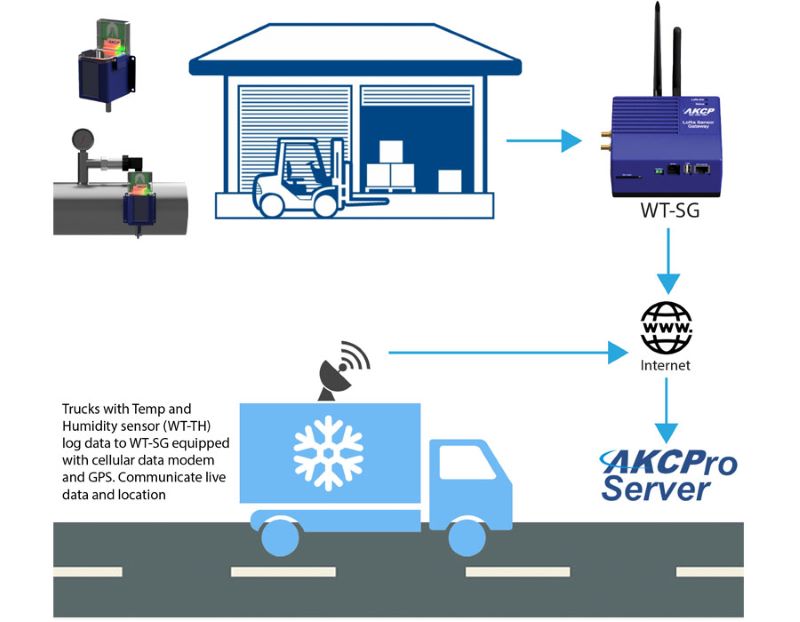With the rise of digital currencies, choosing the right storage method is vital. Hardware wallet vs software wallet—it’s not just a choice; it’s how you shield your crypto assets from harm. Weighing security against convenience can seem like a daunting task, but don’t fret! I’ve broken it down so you can make an informed decision without breaking a sweat. Get ready to dive into the world of wallets where every byte of information counts. Ready to secure your digital riches the right way? Let’s get into it.
Understanding Hardware and Software Wallets: A Primer
The Fundamentals of Hardware Wallets
Hardware wallets are like strong safes for your digital cash. They are physical devices that store cryptocurrency offline. This means they’re safe from many online threats like hacking. The way they work is simple: they keep your private keys inside, never revealing them to the outside world.
Hardware wallet benefits include top-notch security. You might hear terms like ‘cold storage’, which just means keeping crypto offline. This is what hardware wallets do best. They are the go-to if you want peace of mind about your digital riches.
To use one, you plug the wallet, often looking like a USB, into a computer. You can then move your cryptocurrency in or out. When done, unplug it and your assets go back to being air-tight secure. But security isn’t the only benefit. They’re also famous for their multi-signature wallets feature. This means more than one person needs to agree before any crypto moves.
There are a few things to keep in mind with these though. They can cost a bit more than other options. The setup might take some time as well. You’ll need to understand how to use it, but once set up, it’s pretty easy.
The Essentials of Software Wallets
Software wallets, on the other hand, are like convenient wallets you carry in your pocket. They run on devices like phones or computers. You can think of them as ‘hot wallets’. This means they are connected to the internet, making them easier to use but also exposing them to more risks.
Software wallet advantages include being able to trade or use your crypto fast. They’re usually free or low-cost, and setup is a breeze. You just download an app or program and get going. They’re super handy when you want to use your crypto for everyday things like coffee or books.
Having your wallet on your computer or phone also means easier access. However, being online more leads to greater risks. Desktop wallet risks can include viruses or fraud. Mobile wallets could face problems if you misplace your phone or it gets stolen.
Safety is still strong though, with encryption techniques and backup options. Many are also open-source, which lets anyone check how secure they are. They are user-friendly crypto wallets for sure, perfect for new users or daily crypto spenders.
Software wallets shine when you need quick access or are always on the move. They also work great for small amounts of crypto. For large amounts, though, you might want that extra security hardware wallets offer.
When choosing the best wallet for your cryptocurrency, think about what works for you. Do you value security more, or is being able to move crypto fast your main need? It’s like choosing between a safe at home and a wallet in your back pocket. There are many options out there, so take your time and choose wisely. Your digital riches deserve the best home, after all.
Analyzing Security: Hardware wallet vs Software Wallets
Cold Storage Solutions: An Exploration
We all want to keep our digital money safe. Have you heard about cold storage? It’s like a safe for your digital coins. Hardware wallets are the go-to for cold storage. They’re USB-like devices that store your private keys offline. This means they’re super safe from hackers. When you need to make a transaction, just plug in your device. Then, confirm it right there. Unplug it after, and boom – back to being safe!
These wallets keep your keys away from the internet. So, even if someone attacks your computer, your digital wealth stays untouched. Plus, most hardware wallets need you to press a button. This adds an extra layer of security. You’re always in control. Many hardware wallets back up your data, too. If you lose your device, you won’t lose your coins. Just use your backup to get your money back.
Setting up a hardware wallet usually has a few steps. You’ll need to write down a recovery phrase, too. Keep these words safe – they’re your last resort if things go wrong. Hardware wallets can cost a bit, but it’s for peace of mind. Brands like Ledger and Trezor are trusted in the field.
Hot Wallet Features and Risks
On the other hand, let’s talk hot wallets. These are apps on your phone or computer. Software wallets make sense for spending and trading your coins. They’re easy to use and you can access them anywhere with internet. You can find many for free, making them super handy for beginners. Plus, some software wallets can handle many types of coins. This is perfect for users with different digital currencies.
However, with hot wallets, there’s more risk. Since they’re connected to the internet, they can attract hackers. Your private keys stay on your device or even on a server. This can be a big target for theft. Some software wallets offer multi-signature options. These need more than one key to open your wallet. This can reduce the risk, but the threat is never zero.
Also, phones and computers are less secure than a hardware wallet. They can get malware or viruses that target your wallet. You have to be really careful about security. Make sure your wallet app is always updated. Avoid clicking on unknown links or downloading suspicious stuff.
Understanding these security details is key. It helps you choose the best wallet for your needs. Do you want total safety with a hardware wallet? Or do you prefer convenience with a software wallet? Think about what matters most for you. Then pick a wallet that suits your digital lifestyle best. Keep learning and stay informed about your choices. This way, you’ll know your digital riches are well taken care of.
Weighing Convenience Against Risk
Mobile Wallet Convenience and Accessibility
How handy is a mobile wallet? Think of it as your digital pocket for money. Mobile wallet convenience shines bright when you need fast access to your cash. You can send and get coins with just a few taps. No need for a computer or long waits. It’s all about ease and getting to your funds on the go.
But what about mobile wallet safety? Here’s the deal: mobile wallets, also known as hot wallets, are connected to the internet. That means hackers could sneak in. It’s vital to pick secure crypto wallets with strong features. Think of things like pin codes, biometrics, and maybe even multi-signature options. These can help guard your digital bucks.
Yet, even the best wallet for cryptocurrency has risks if it’s a hot wallet. So, keep just a bit of money there, like in a real wallet. The big chunk of your coins should stay somewhere more secure, like a hardware wallet.
Hardware Wallet Costs and Setup Complexity
Thinking about buying a hardware wallet? It’s like a personal vault for your crypto. Hardware wallet benefits include keeping your private key locked away offline. See, hackers can’t touch what’s not on the web. That’s why it’s a top pick for storing your stash safely.
But here comes the “but”: hardware wallet costs more than a software option. It’s a small device, kind of like a USB crypto wallet. You’ll need to pay upfront. And yes, setting it up takes a few more steps than a mobile app. You might have to write down backup words and make sure it’s all current with the latest hardware wallet updates.
Yet, that extra bit of hassle is worth it. You’re buying peace of mind knowing your crypto is in cold storage. It’s away from online wallet threats. If you need help, most hardware wallet brands offer guides to ease you in.
And consider this: if you misplace your hardware wallet, it’s not game over. With your backup words and wallet recovery methods, you can breathe easy. You can bring your coins back from being lost. In short, a hardware wallet is a one-time buy with long-term safety for your digital wealth.
Remember, when picking between mobile and hardware, match your choice to how you use your crypto. If you trade a lot, maybe a mobile wallet’s quick moves are for you. But lock up your life savings in hardware. That way, you’ve got the best of both worlds: simple daily spends and iron-clad protection for most of your money.
Long-Term Management: Maintenance and Updates
Software Wallet Maintenance Over Time
When you use software wallets, think of them like a car. They need regular checks to stay safe. Software updates are vital to keep hackers away and to fix any bugs. Always back up your wallet, so you won’t lose your crypto cash if something goes wrong. This care keeps your digital dollars safe for the long haul.
Using a software wallet takes some work, but it’s like riding a bike. Once you get the hang of it, it’s a breeze. These wallets are easy to access from anywhere, at any time. Just have your device, and you can get to your coins with just a few taps.
Staying Current: Hardware Wallet Updates and Support
Hardware wallets require less daily care. They’re like a safe where your digital gold rests easy, far from online bandits. These gadgets, though, also need updates. The makers send out new software to keep security tight.
Make sure to get these updates as soon as they drop. Don’t delay! They help fend off new threats that try to steal your stash. Some updates add new features too, like supporting more kinds of coins. It’s like tuning up your safe to hold more treasure.
Remember, for either wallet type, keep your private keys secret. Never share them. With hardware wallets, jot down the seed phrase (a recovery backup) and lock it somewhere safe. It’s your lifeline if your wallet ever goes missing.
Now, caring for your hardware wallet includes knowing where to buy one. Go for known brands. They’ve earned people’s trust and support various coins. Don’t buy a hardware wallet from shady places. You want a wallet that’s safe as houses, not one that’s been messed with.
Always think about how much help you’ll get from wallet providers. Good service can make a world of difference, especially if you run into trouble. A helping hand when you need it most can save you from a real crypto pickle.
In the end, weigh these points when choosing your crypto wallet. Want something handy with a bit more upkeep? Go software. Prefer a bolted-down choice with updates now and then? A hardware wallet fits the bill. Pick the best wallet for your cryptocurrency, and sleep sound with your digital riches snug as bugs in a rug.
In this post, we’ve unpacked the nuts and bolts of hardware and software wallets. You learned the basics of hardware wallets and what makes software wallets tick. We dug into their security, weighing the cool safety of hardware wallets against the everyday ease of software ones. Then, we balanced the convenience of mobile wallets with the effort and cost of hardware options.
We also talked about keeping your wallets working well over time. For software wallets, this means regular maintenance. For hardware wallets, it’s about staying fresh with updates.
Here’s the bottom line: Your best pick depends on what matters most to you. Do you want top-notch security or easy access? Are you okay with extra costs for peace of mind? Think about these points when choosing your wallet. And hey, keep your coins safe! Follow Crypto Market Pulse to update more knowledge about Crypto.
Q&A :
What are the main differences between a hardware wallet and a software wallet?
Hardware wallets are physical devices designed to securely store cryptocurrency offline, known as “cold storage.” They provide enhanced security by keeping your private keys completely disconnected from the internet, making it nearly impossible for hackers to access your funds. Software wallets, on the other hand, are applications that can be installed on a computer or smartphone. They store your private keys online or on devices connected to the internet, known as “hot storage,” making them more convenient but also more vulnerable to online threats.
How secure is a hardware wallet compared to a software wallet?
Hardware wallets are generally considered more secure than software wallets due to their offline nature. Since hardware wallets are not connected to the internet, they are less susceptible to online hacking, phishing, and malware attacks. On the contrary, software wallets, while equipped with various security measures such as encryption and 2-factor authentication, are more exposed to risks like virus infections, keyloggers, or security breaches on the platform they are hosted on.
Which wallet type is better for everyday transactions – hardware or software?
For everyday transactions, a software wallet might be more convenient due to its easy accessibility through your internet-connected devices like smartphones or computers. It allows quick transactions and is suitable for handling smaller amounts of cryptocurrencies that you might need for daily use. However, for larger amounts or long-term storage, a hardware wallet’s robust security features make it a better choice to protect your assets.
Can hardware wallets be hacked?
While hardware wallets are designed for maximum security, no device is entirely hack-proof. Most vulnerabilities in hardware wallets arise from user error, such as using a compromised computer to set up the wallet, falling for phishing attacks, or physically losing the device without having a proper backup of the private keys. However, incidents like these are relatively rare and require very specific conditions to be met, making hardware wallets one of the safest options for storing cryptocurrency.
What should I consider when choosing between a hardware wallet and a software wallet?
When deciding between a hardware wallet and a software wallet, consider factors such as the amount of cryptocurrency you plan to store, your daily transaction needs, your technical proficiency, and your personal preference for convenience versus security. For holding large sums or as a long-term investment, hardware wallets are preferable. For frequent access and ease of use, particularly with smaller amounts, software wallets are more appropriate. Also, take into account the cost, as hardware wallets are typically a one-time purchase, whereas software wallets can be free or offer premium services for a fee.





